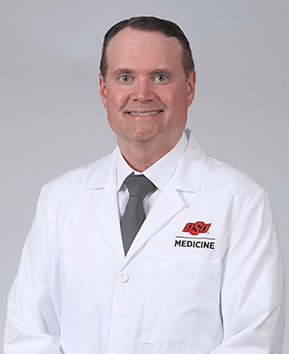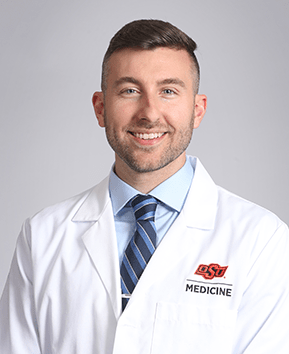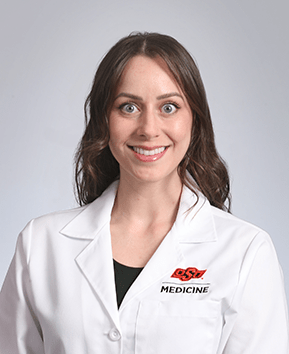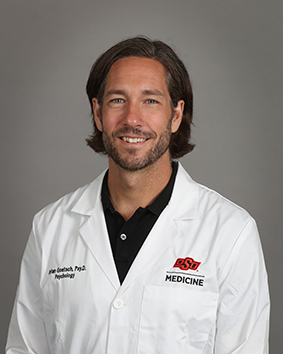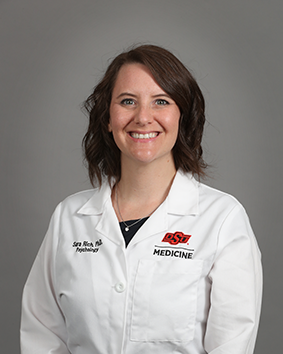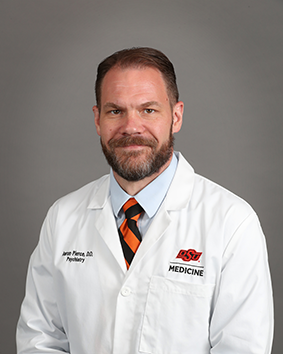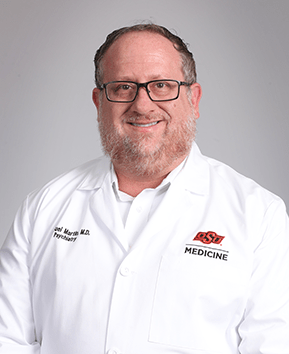OSU’s Behavioral Medicine Clinic is dedicated to providing exceptional psychiatric, psychological and neuropsychological care to residents of Tulsa and northeastern Oklahoma. Our psychiatrists specialize in a wide range of emotional and behavioral disorders for adults and children. We care for patients who suffer from depression, anxiety, headaches, migraines, sport-related issues, obesity and more. Neuropsychology service provides comprehensive testing for children and adults for concussion, ADHD, learning disorders, autism, memory and dementia, and other conditions. Our services also benefit active duty military and veteran populations.
Psychiatric Assessment and Medication Management
- Depression
- Anxiety
- Bipolar Disorder
- Personality Disorder
- Schizophrenia
- Traumatic Brain Injury (TBI)
- Post-Traumatic Stress Disorder (PTSD)
An initial 60-minute intake interview consists of a full and comprehensive mental health and medication assessment, using patient history, referral notes, and patient concerns. This is in combination with a complete psychological evaluation. Medication management is then conducted in 30-minute appointments, scheduled weekly, bimonthly, or monthly based on the patient reaction to medication.
Psychiatric Assessment and Medication Management
- Attention-Deficit Hyperactivity Disorder (ADHD)
- Anxiety
- Bipolar Disorder
- Disruptive Mood Dysregulation Disorder (DMDD)
- Autism Spectrum Disorder (ASD)
- Post-Traumatic Stress Disorder (PTSD)
Initial 90-minute intake interview consists of a full and comprehensive mental health and medication assessment, using patient history, referral notes, and patient concerns. This is in combination with a complete psychological evaluation. Medication management is then conducted in 30-minute appointments, scheduled weekly, bimonthly, or monthly based on the patient reaction to medication.
Neuropsychology Testing
- Adult and Pediatric Neurology
- Autism
- Academic/ Learning Concerns (All Ages)
- Pediatric Neurodevelopmental Assessments (Ages 2-21)
- Dementia and Geriatric Assessments
- Pediatric Behavioral/ Emotional Assessments (Ages 2-21)
- Personality Assessments
- Traumatic Brain Injury (TBI) and Concussion
- Stroke Assessments
Initial 60-minute intake interview consists of a full and comprehensive intake assessment, documenting patient history, referral notes and patient concerns. Following the initial intake interview a test is designed to address diagnostic presentation. These testing sessions are usually 2-4 hours in length varying by patient cooperation, energy levels and diagnostic question. No pre-testing preparation is required. Once the testing process is complete, a feedback session consisting of a review of the testing report and any additional referrals to address diagnosis or additional clarifications are made.
Therapy
- Adult Psychotherapy
- Mood and Emotional Concerns
- Trauma
- Phobias
- Adjustment Issues
- Obsessive Compulsive Disorder (OCD)
- Severe Mental Illness Management
- Anxiety
- Managing Attention-Deficit Hyperactivity Disorder (ADHD)
- Coping with Chronic Illness
- Stress Management
- Depression
- General Psychological Evaluation and Consultation
- Child and Adolescent Therapy (Ages 5-18)
- Family and Relationship Counseling
- Psychological Interventions for Chronic Pain
Initial 60-minute intake interview consists of a full and comprehensive mental health and medication assessment, using patient history, referral notes and patient concerns. Therapy is then scheduled weekly. Length is based on the therapy plan between the patient and psychologist.
ECT Treatment
- Treatment Resistant Unipolar and Bipolar Depression
- Catatonia
- Schizophrenia
- Patients with 3 Failed Medication or Medical Trials
Electroconvulsive Therapy (ECT) remains the gold standard of treatment for severe, medication-resistant depression. Recent advances in technology have improved the safety and tolerability of the procedure. ECT is used to treat mental illness via the application of a controlled electrical stimulus to the scalp which induces a brief generalized seizure in the brain. This seizure activity brings about certain biochemical changes which may cause symptoms to diminish or to even disappear. The therapy is administered in a hospital room with the patient under general anesthesia. ECT is most commonly used to treat severe depression in patients that are unresponsive to other forms of treatment or in patients in whom it is dangerous to wait for medications to take effect. Less often it may be used for patients with treatment resistant schizophrenia or mania. A 60-minute consultation visit will consist of a comprehensive evaluation of prior medical history. If ECT is deemed appropriate, index treatment sessions will be scheduled three times a week and will transition to maintenance treatment sessions which begin at weekly or monthly sessions; length is based on treatment plan.

Your mental health is as important as your physical health.
Anxiety and depression can cause sleep deprivation, headaches, fatigue and digestive problems which can worsen chronic and long-term illnesses such as diabetes and stroke, and increase the risk of heart attack. Experts at OSU Behavioral Medicine provide exceptional psychiatric, psychological and neuropsychological services to care for adults and children.
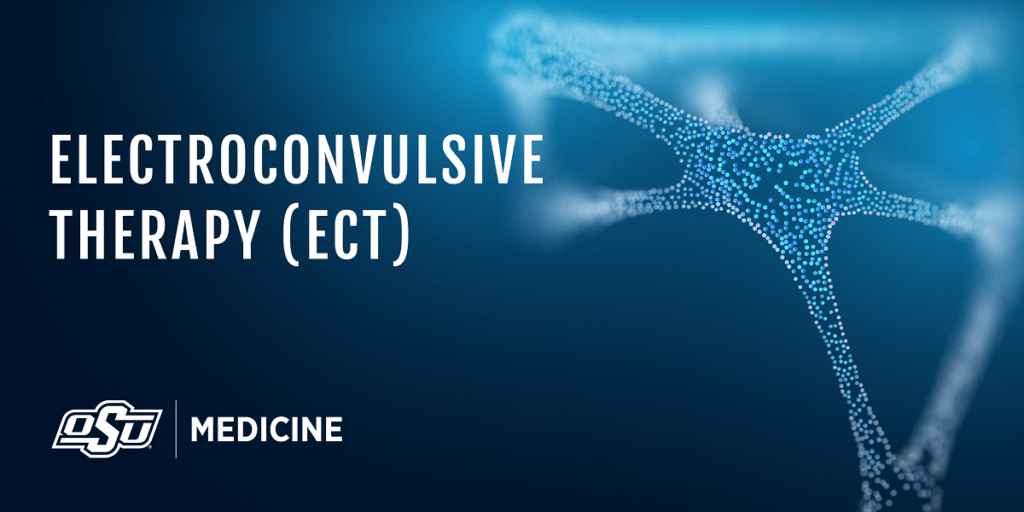
ECT remains the gold standard for treating severe depression in patients who are unresponsive to other forms of treatment or in patients in whom it is dangerous to wait for medications to take effect. Call OSU Behavioral Medicine for information, 918-236-4000.
Locations
Find a Doctor
OSU Behavioral Medicine – Legacy Address: 5310 E 31st St Suite LL, Tulsa OK 74135 Phone: 918-236-4000
OSU Behavioral Medicine – Legacy Address: 5310 E 31st St Suite LL, Tulsa OK 74135 Phone: 918-236-4000
OSU Behavioral Medicine – Legacy Address: 5310 E 31st St Suite LL, Tulsa OK 74135 Phone: 918-236-4000
OSU Behavioral Medicine – Legacy Address: 5310 E 31st St Suite LL, Tulsa OK 74135 Phone: 918-236-4000
OSU Behavioral Medicine – Legacy Address: 5310 E 31st St Suite LL, Tulsa OK 74135 Phone: 918-236-4000
OSU Behavioral Medicine – Legacy Address: 5310 E 31st St Suite LL, Tulsa OK 74135 Phone: 918-236-4000
OSU Behavioral Medicine – Legacy Address: 5310 E 31st St Suite LL, Tulsa OK 74135 Phone: 918-236-4000
OSU Behavioral Medicine – Legacy Address: 5310 E 31st St Suite LL, Tulsa OK 74135 Phone: 918-236-4000
OSU Behavioral Medicine – Legacy Address: 5310 E 31st St Suite LL, Tulsa OK 74135 Phone: 918-236-4000
OSU Behavioral Medicine – Legacy Address: 5310 E 31st St Suite LL, Tulsa OK 74135 Phone: 918-236-4000
OSU Behavioral Medicine – Legacy Address: 5310 E 31st St Suite LL, Tulsa OK 74135 Phone: 918-236-4000
OSU Behavioral Medicine – Legacy Address: 5310 E 31st St Suite LL, Tulsa OK 74135 Phone: 918-236-4000
OSU Behavioral Medicine – Legacy Address: 5310 E 31st St Suite LL, Tulsa OK 74135 Phone: 918-236-4000

